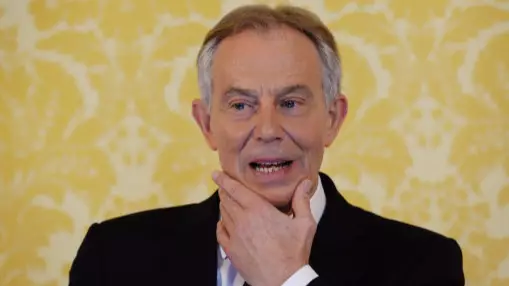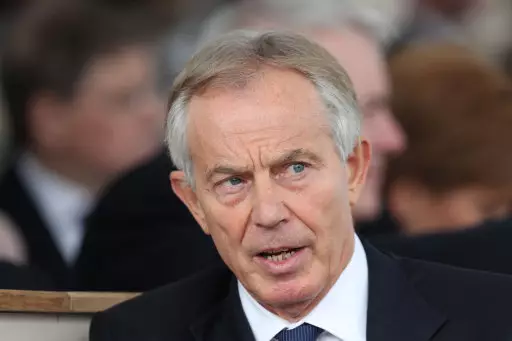
Tony Blair, was not 'straight with the nation' when deciding to send British troops to Iraq in 2003, Sir John Chilcot has said.
The chairman of the public enquiry, which looked at Blair's decision to go to war against Saddam Hussein, said the former prime minister had relied on emotion and fact when recalling his account of events.
In an interview with the BBC, Chilcot said: "Tony Blair is always and ever an advocate. He makes the most persuasive case he can. Not departing from the truth but persuasion is everything."
Advert
Blair's team have denied the claims, saying that the decision to begin war was made with facts 'beyond reasonable doubt'.

Credit: PA
Chilcot was also asked if Blair had been as truthful with him and the public as he could have been during the seven-year enquiry.
Advert
"Can I slightly reword that to say I think any prime minister taking a country into war has got to be straight with the nation and carry it, so far as possible, with him or her. I don't believe that was the case in the Iraq instance," he replied.
He continued to say that Blair was 'emotionally truthful' in his account, which was seen throughout the press conference and launch statement upon the report's publication.
Chilcot's report, published in July 2016, stated that the former Iraqi dictator, Saddam Hussein, didn't pose an 'imminent' threat at the time of invasion in 2003. The findings, which studied the period 2001-2010, also stated that the war was justified on 'flawed' intelligence.
Credit: BBC
Advert
The chair of the report stated that Blair has been under significant 'emotional pressure' during the war and the subsequent enquiry.
Chilcot, who initially was only given eight minutes to decide if he wanted to lead the enquiry, said the Blair interrogation was 'extraordinarily intense'.
David Cameron wanted the inquiry sped up, yet Chilcot said he resisted pressure, saying to do so would have been 'unforgiveable'.

Credit: PA
Major General Tim Cross, who advised Blair on the invasion of Iraq, told BBC Breakfast that Blair was emotional when it came to warfare.
"When I met Tony Blair in Kosovo," he said, "he literally wept in the tens with the refugees.
"When I briefed Tony Blair [in 2003] it was quite clear that he felt that this was a necessity, that there was a just cause, that we had to do something about this. My own sense is that he wasn't far short, if he was short.
"I have no problem with the fact that in the end we did away with Saddam Hussein. I watched mass graves being dug up in Iraq. This was a nasty, brutal dictator."
A spokesperson for Blair has criticised the BBC's interview, standing firm that Blair, on the night of the invasion, asked: 'Can you tell me beyond any reasonable doubt that Saddam has weapons of mass destruction?' The reply was yes.
Advert
A spokesman for Blair told the BBC that 'all these issues' had been dealt with.
Topics: BBC